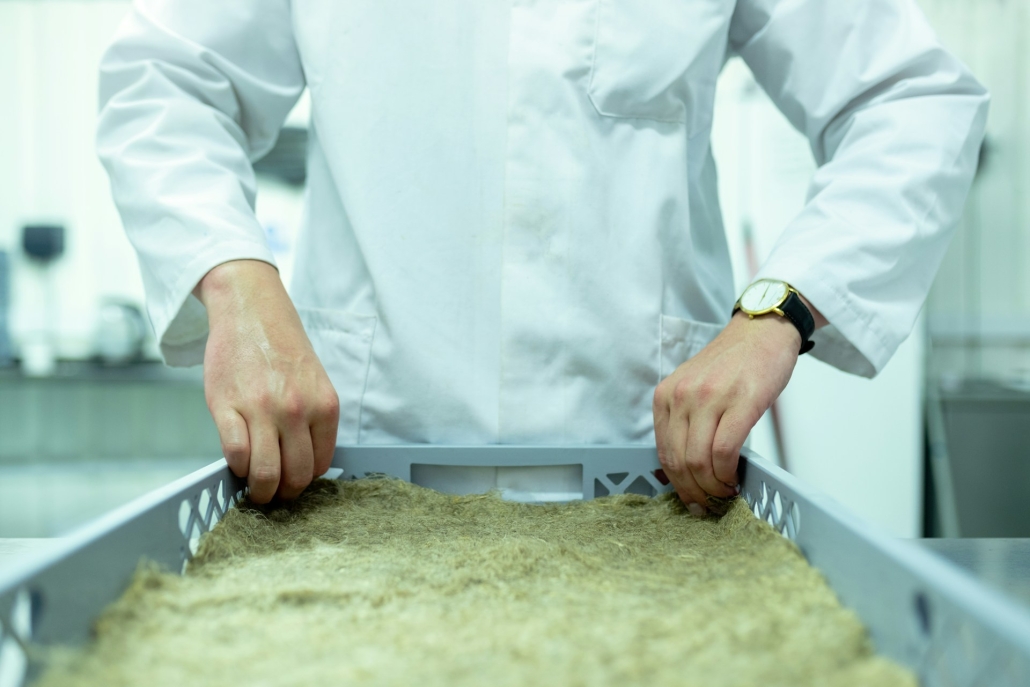Synthetic cannabinoids, a class of psychoactive substances, have recently garnered significant attention due to their widespread use and associated health risks. Unlike natural cannabinoids found in cannabis plants, synthetic cannabinoids are human-made chemicals designed to mimic the effects of cannabis-based cannabinoids. For example, many of them mimic the main psychoactive chemical in marijuana, delta-9-tetrahydrocannabinol (Delta-9 THC). Despite their appeal as potentially legal alternatives to cannabis, synthetic cannabinoids present potentially serious health risks. Thus, the future of synthetic cannabinoids remains uncertain as public health officials and researchers continue to investigate their impact [1]. Let’s explore the landscape of synthetic cannabinoids and what they mean for consumers.
The rise of synthetic cannabinoids
As part of a broader trend toward developing designer drugs, synthetic cannabinoids first emerged in the early 2000s [2]. These substances, also known as cannabinoid designer drugs, were marketed as “herbal incense,” “herbal smoking mixtures,” or “harmless incense.” Additionally, they were sold under product and brand names like K2, K2 Spray, Sprayed Weed, Wax Droga, Spice, and Black Mamba. These products typically contain shredded plant material sprayed with synthetic cannabinoid chemicals. Typically, the chemicals found in these substances mimic the psychoactive properties of THC by binding to cannabinoid receptors in the brain, producing effects similar to those of natural Delta-9 THC derived from either marijuana or hemp [3].
In essence, the appeal of synthetic marijuana lies in its accessibility. For instance, convenience stores, gas stations, and online boutiques have sold many of these products, often labeling them as legal and safe alternatives to marijuana. However, this perception is far from accurate. In reality, most synthetic cannabinoids are wild card substances due to their unknown ingredients and potentially harmful effects, particularly among teens [4]. Despite this, manufacturers continue to create new synthetic compounds to skirt legal regulations. As a result, manufacturers have ushered in a new class of synthetic cannabinoids with ever-changing chemical structures [5].
Guide to Natural, Plant-Based CBD
The health risks of synthetic cannabinoids
Using synthetic cannabinoids can lead to severe and sometimes life-threatening health effects. For instance, unlike classical cannabinoids found in natural cannabis, synthetic cannabinoid chemicals bind with more affinity to cannabinoid receptors, leading to more acute effects and/or symptoms. Indeed, some users report elevated blood pressure, rapid heart rate, and difficulty breathing. Even worse, some users suffer from severe symptoms such as acute kidney injury, unexplained bleeding, and even severe bleeding linked to rat poison contamination found in certain synthetic cannabinoid products [6].
Notably, the adverse effects of synthetic cannabinoids are not limited to physical symptoms. For example, their use may elevate the risks of substance use disorders, particularly among individuals seeking legal alternatives to illegal drugs. Likewise, the intense psychoactive properties of these synthetic substances can lead to addiction, withdrawal symptoms, and long-term mental health issues. Indeed, some users have reported significant anxiety, paranoia, and psychosis [6].
In recent years, emergency room visits related to synthetic cannabinoid use have increased dramatically. Also, healthcare providers report seeing patients with severe symptoms that do not respond to typical treatments for natural cannabis intoxication. In many cases, the symptoms are so severe that they require intensive care. Hence, many experts have significant public health concerns [7].
How Long Does Cannabis Stay In Your System and Affect Drug Tests?
The challenge of regulation and public perception
One of the most significant challenges in addressing the public health impact of synthetic cannabinoids is the constantly evolving nature of these substances. For example, as soon as the FDA classifies a particular synthetic cannabinoid as a controlled substance, manufacturers alter the chemical structure to create a new, unregulated compound. Ultimately, this cat-and-mouse game between regulators and manufacturers makes it difficult to keep synthetic cannabinoid products off the market [5].
Moreover, public perception of synthetic cannabinoids complicates efforts to reduce their use. For example, many individuals, particularly young people, view these substances as a safe and legal alternative to marijuana. The fact that they are often sold as “herbal incense” or “herbal products” only adds to the misconception that they are harmless. However, these products are far from safe. Compounding their dangers, most synthetic cannabinoids have not been tested for human consumption, and their long-term health effects remain largely unknown [8].
How Cannabis Activists Are Changing the Legal Landscape
Real weed vs fake weed
When selecting hemp or cannabis products, it’s crucial to choose from reputable companies that provide transparency through third-party lab reports. This way, consumers can avoid the risks of products contaminated with synthetic cannabinoids and harmful other substances. Notably, synthetic cannabis products may claim to be herbal blends or herbal incense products. However, they may elicit adverse health effects, including symptoms from difficulty sleeping to unexplained bleeding. Unlike natural hemp products, synthetic cannabinoids sometimes reside in designer drugs such as “bath salts” and “liquid herbal incense,” all of which may have harmful effects [9].
Earthy Now stands out as a trusted source of high-quality hemp products. Indeed, they offer assurance in the frm of third-party lab reports confirming that their products are free from synthetic cannabinoids. This transparency protects consumers from the dangers associated with synthetic cannabis and other harmful substances. Thus, by choosing Earthy Now, consumers can confidently avoid the risks of unsafe designer drug products.
The Future of Hemp Flower Wholesale: Predictions and Trends
A premium source of real, organic cannabis products
For cannabis enthusiasts seeking the best, safest low-THC, high-CBD products, Earthy Now has something for everyone.
Explore these popular products from Earthy Now:
- Terpenes
- CBD Flower
- Hemp Smokes
- Gummies (including Sleep Gummies!)
- Lozenges
- Tablets (THC Free!)
- Soothing Relief Lotion
- Soothing Relief Salve
- CBD Pet Tinctures (no THC!)
- Oils
- Pre-Rolls
Understanding the Potency and Ingredients of Pet CBD Products
The future of synthetic cannabinoids
Despite the many challenges associated with synthetic cannabinoids, some researchers believe these substances could have potential medical applications. For example, certain synthetic cannabinoids have shown promise in preclinical studies for their neuroprotective properties, particularly in the potential treatment of conditions like epilepsy and multiple sclerosis. However, the potential benefits of these substances must be weighed against their significant risks. Currently, scientists must conduct more research to prove their potential benefits and risks and ensure safe applications [10].

Advances in forensic science, particularly in forensic toxicology and mass spectrometry, have made it easier to identify the presence of synthetic cannabinoids in biological samples. This progress is crucial for both law enforcement and public health officials as they work to understand the scope of synthetic cannabinoid use [11].
Possibly, the future of synthetic cannabinoids will involve a combination of stricter regulation, improved public education, and ongoing research into their potential medical benefits and risks. Additionally, governments may need to adopt more flexible regulatory frameworks that can quickly respond to the emergence of new synthetic cannabinoid compounds. Experts stress that public health campaigns should focus on dispelling the myths surrounding synthetic cannabinoids. Most importantly, the maintain, these campaigns must educate people about these substances’ severe and potentially life-threatening health effects [12].
Key takeaway: the future of synthetic cannabinoids
The future of synthetic cannabinoids is fraught with challenges, from the ever-changing chemical structures to the unpredictable health risks associated with their use. While some synthetic cannabinoids may hold promise for medical applications, the risks of these substances far outweigh their potential benefits in their current form. Thus, as researchers, regulators, and public health officials grapple with the complex issues surrounding synthetic cannabinoids, consumers must proceed with great caution. Only through a combination of education, regulation, and research can we hope to mitigate the harmful effects of synthetic cannabinoids and protect public health.
For safe, organic hemp products free from synthetic cannabinoids, visit Earthy Now and choose from myriad wellness products!
Learn more about cannabinoids: The Safety of CBD Oil for Pets: What You Need to Know
Medical Disclaimer / Legal Disclaimer – Information is provided for educational purposes. It does not and is not intended to constitute legal advice or medical advice. We attempt to be accurate and up-to-date, but the legality of cannabinoids and the science of cannabis are evolving. The author is neither a legal professional nor a medical expert. Before buying or using any products, you should check with your local authorities and medical providers.
References
- Synthetic and Non-synthetic Cannabinoid Drugs and Their Adverse Effects-A Review From Public Health Prospective
- How The Wave Of Synthetic Cannabinoids Got Started
- Spice Drugs are More Than Harmless Herbal Blends: A Review of the Pharmacology and Toxicology of Synthetic Cannabinoids
- Synthetic Cannabinoid Use in a Nationally Representative Sample of US High School Seniors
- Facts About Synthetic Cannabinoids
- Risks of Taking Synthetic Cannabinoids
- Synthetic Marijuana Addiction Treatment
- Knowledge and Perceptions of Synthetic Cannabinoids Among University Students
- The Dangers of Synthetic Weed (K2/Spice)
- Therapeutic Use of Synthetic Cannabinoids: Still an Open Issue?
- Detection of 93 Synthetic Cannabinoids by Liquid Chromatography-Tandem Mass Spectrometry
- The Regulatory Challenge of Synthetic Cannabinoids
- Spice/ K2, Synthetic Marijuana




 Earthy Now
Earthy Now